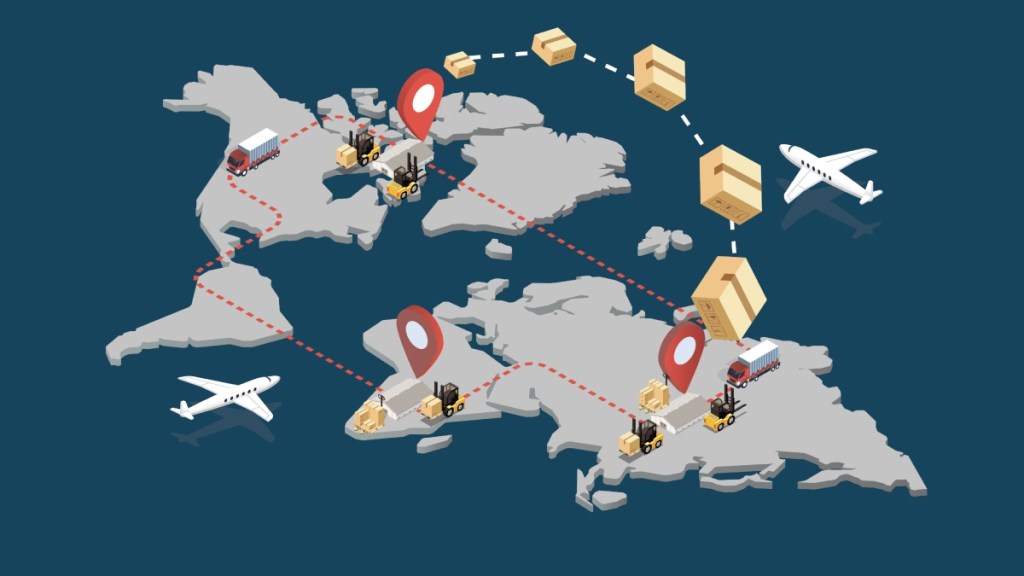By Anshuman Singh
Developing better supply chain risk management capabilities as well as building superior supply chain resilience and efficiency have become the core focus across sectors in the post-pandemic phase. Flexibility, agility, stability and visibility have become the critical parameters of the supply chain operation arch given the heightened competition across the markets.
Insulating supply chain operations from external shocks tops the priority of all supply chain management companies. As a result, the conventional framework of supply chain is increasingly making way for digitally-enabled architecture equipped with smart technologies such as artificial intelligence (AI), machine learning, big data, Internet of Things (IoT), cloud systems, data sciences, etc.
The core agenda driving the smart technology adoption is three-pronged –to build predictive capabilities, enhance operational effectiveness and boost capacity to manage a higher volume of cargo. As customers are increasingly becoming demanding, switching to smart technologies is the way to compete and thrive in the hypercompetitive market scenario. The smart technology stack bolsters operational efficiency with real-time visibility, cost competency, superior route optimisation, higher throughput, etc.
Enhanced efficiency led by AI
AI is the mainstay of the smart technology stack. One significant benefit of AI-powered logistics management is the optimisation of delivery costs. AI algorithms can analyse various factors such as distance, traffic conditions and vehicle capacities to determine the most cost-effective delivery routes. Additionally, intelligent fleet management systems help in selecting the right vehicles for specific deliveries, ensuring efficient resource allocation. According to a report on artificial intelligence in the supply chain released by ResearchAndMarkets.com, AI-enabled supply chains are 67 percent more efficient than their non-AI counterparts because of reduced risks and lower costs.
Big data and the IoT also play crucial roles in transforming supply chain management by providing valuable insights. Big data analytics can analyse historical sales data, market trends, and other relevant factors to predict future demand accurately. Companies can no longer let the bullwhip effect (miscalculating the future demand) take control, leading to inventory excesses.
Precision in optimisation through IoT
IoT devices, such as RFID tags, GPS trackers, and sensors enable real-time tracking of shipments, inventory, and vehicles throughout the supply chain. This data, combined with big data analytics, provides visibility into the location, condition, and movement of goods, allowing companies to monitor and manage their logistics operations more effectively.
IoT-based warehouse management solutions are crucial additions to supply chain operations. Equipment like shelf sensors have made inventory management smart and efficient. IoT sensors placed on shelves, racks or storage units provide real-time data on inventory levels, ensuring accurate and up-to-date information about stock availability.
Scalability with Cloud
Cloud is another disruptive technology capable of changing the face of supply chain operations. With organisations becoming deeply data-reliant, the cloud is being adopted widely to cut infrastructure costs and enable smoother data storage and analysis. By facilitating remote storage of data, cloud solutions offer storage and operations scalability, improved security, agility, real-time visibility, and reduced loss of productivity due to downtime. PwC’s 2023 Digital Trends in Supply Chain Survey reveals that cloud adoption, partially or fully (84 percent), and IoT adoption (79 percent) have emerged as the key priorities among supply chain leaders globally.1
Predictability and responsiveness – the name of the game
Pandemic experiences have been great learnings for businesses, as those phases reiterated the importance of developing systemic agility and operational responsiveness in the supply chain operations. Supply chain management being a network-centric operation, smart and disruptive technology adoption goes a long way in building predictive and responsive capabilities. In a highly demand-driven scenario, uncertainty needs to be mitigated with better risk management and data processing mechanisms. Having said that, as a recent Gartner report points out, companies need to stay away from “resiliency-washing” solutions in their quest to achieve true supply chain resiliency.2
The author is Chairman and MD, Stellar Value Chain Solutions
Disclaimer: Views expressed are personal and do not reflect the official position or policy of Financial Express Online. Reproducing this content without permission is prohibited.



















